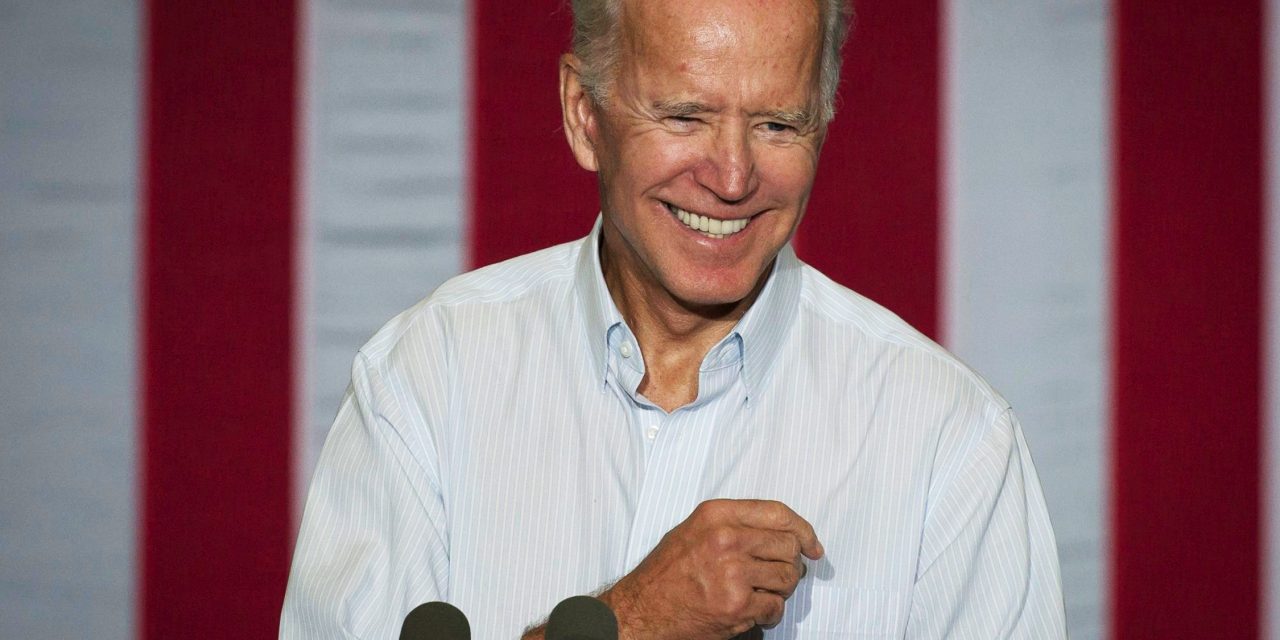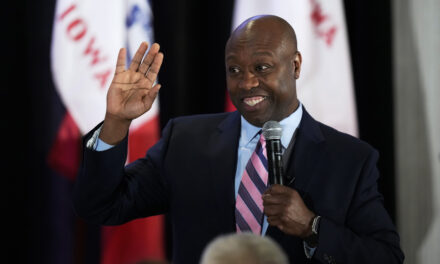Image Credits: Bryan Woolston/Shutterstock.
My colleague Brendan Skwire believes that Joe Biden is insulting our intelligence when he says that Republicans know what they’re doing for Trump is wrong and they’ll behave better when he is president. Kevin Drum thinks all of Biden’s critics are almost inexplicably clueless and that Biden shouldn’t be taken literally. Could they both be right?
For many people, including Skwire, it’s important to know if Biden is just saying these things because he knows people want to believe that bipartisanship is still possible or he actually is dumb enough to think the senators in the modern GOP will work with him in good faith. But Drum isn’t interested in having that debate.
…Biden isn’t an idiot. Of course he knows what the modern Republican Party is like. But like Obama before him, he also knows that lots of people really like to hear paeans to bipartisanship. We political junkies may hate it, but ordinary people who don’t inhale cable news are suckers for the idea that we can all get along if we just give it a try—and there are way more of them than there are of us. Biden knows this, so that’s what he tells people. Whether he really believes it or not matters not a whit.
What’s interesting about Drum’s position is that he basically concedes that Biden is insulting our intelligence, but he approves of this because he considers it good politics. That settles one aspect of the dispute, but then Drum goes on to say it doesn’t matter in the slightest whether or not Biden actually believes what he’s saying.
There are two main weaknesses in this argument. The first is that Drum creates a tension when he insists that Biden is not an idiot and he’s merely telling “suckers” what they want to hear, but then is agnostic about whether Biden is actually a sucker himself. I don’t think you can have it both ways and think you’re actually engaging in the debate rather than trying to sidestep it.
The second weakness is that Drum basically argues from authority that it “matters not a whit” whether Biden believes what he’s saying. He doesn’t make any effort to explain why it doesn’t matter. He simply insists that it does not.
While Skwire could be right that Biden is insulting our intelligence and Drum might be correct that his detractors are as naïve as they claim Biden to be, that still doesn’t settle whether or not we should care what the former vice-president actually believes.
One of the more attractive aspects of Biden’s personality and political career is his relative lack of cynicism. He’s known for erring on the side of saying too much, not too little. He’s known for being a little too transparent about his internal thought processes rather than leaving people guessing about his true motives. If he’s being as manipulative as Drum claims in this instance, it’s off brand at a minimum. If there’s another side to Biden, that seems relevant to how voters should judge his ability to take on Donald Trump.
I also have difficulty understanding why it wouldn’t matter if a new president entered the office with completely unrealistic expectations about the kind of cooperation and dealmaking that will be available from the Republican side. They might get rolled repeatedly by the opposition and suffer major political setbacks as a result. They might waste precious time at the outset of their term when they have the benefit of a honeymoon in pursuit of deals that have no prospect of coming to fruition. They’d have to learn the hard way how to get things done and come up with a plan on the fly, rather than beginning with a plan already in place.
In fairness to Biden, he does have excellent relationships in the Senate. He is respected as a good man if not necessarily a first-rate intellect by virtually everyone he’s ever worked with. The Senate Republicans would certainly treat any Democratic president as the second coming of Vladimir Ilyich Ulyanov Lenin, but they’d actually believe that in the case of Warren or Sanders. In Biden’s case, they’d only be pretending to believe it. There has to be at least some difference in how that would play out.
And the Americans who desperately want to believe that some degree of functionality and normalcy can be restored in our Congress shouldn’t necessarily be dismissed as hopeless rubes. There’s no question that defending Trump brings out the worst in people, and without that as part of their daily job description, Senate Republicans should be expected to behave at least modestly better. They could reasonably be expected to greet an open hand from Biden with more receptiveness than a clenched fist from Warren, for example.
The problem is that we’re talking about a tiny sliver of degree that is more about the intensity and sincerity of Republican opposition than the substance of it. If Biden thinks his personal relationships and professed good will are going to get him very far, then he’s the sucker who is naïve.
This is why I have a real problem accepting Drum’s reasoning here:
This is an example of something that’s sort of amused me for a long time. If you ask people about politicians, you’ll almost invariably hear nothing but cynicism. They lie constantly. They tell people what they want to hear. They flip-flop. They say different things to different audiences. They’re always repeating talking points. Etc.
And yet, in real life, most people take politicians at 100 percent face value: if they say something that’s not obviously preposterous, we simply accept it. Cynicism goes straight out the window. (Unless it’s someone whose guts we hate. Then everything they say is automatically a lie.)
I have no idea what Joe Biden “really” believes about working with Republicans. But I will say this: he’s a politician. There’s zero reason to think he truly believes what he’s saying here. There’s also zero reason to think he doesn’t believe it. The fact that he said it is simply a null input.
I actually agree with the first two paragraphs of that argument. I saw people take every bipartisan statement from President Obama literally when it was often clear that he was merely positioning himself as “the adult in the room” and making “concessions” that he had the luxury of knowing would never be accepted. I found the resulting criticism very frustrating. Obama was a more cunning strategist that his supporters often gave him credit for being, and that was the result of a certain lack of sophistication and justifiable cynicism.
In this case, I think, contra Drum, there are reasons both for believing and disbelieving Biden’s sincerity. And I think the truth of the matter is important for predicting how he’d perform in a one-on-one matchup against Donald Trump and also how he’d perform at the outset of his presidency.
On the flip side, perhaps Skwire should give more credit to the possibility that Biden is more cunning than he appears. It’s not impossible.







